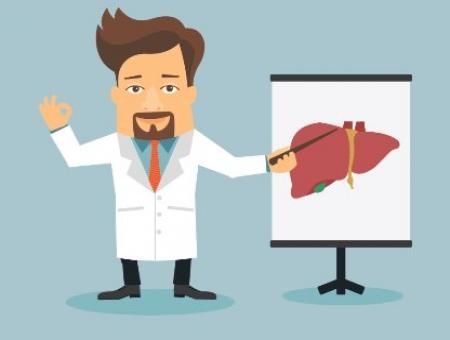
Understanding the Link Between Diabetes and Liver Disease: A Comprehensive Guide
By Dr. Pallavi Garg in Gastroenterology, Hepatology & Endoscopy
Dec 22 , 2023 | 1 min read
Your Clap has been added.
Thanks for your consideration
Share
Share Link has been copied to the clipboard.
Here is the link https://www.maxhealthcare.in/blogs/link-between-diabetes-and-liver-disease
Diabetes and liver disease are interconnected health issues with complex interactions. One can lead to the other, if managed properly one can improve other. Diabetes, particularly type 2, can significantly impact the liver's functionality. The liver plays a crucial role in regulating blood sugar levels by storing and releasing glucose as needed. In diabetes, insulin resistance or insufficient insulin production disrupts this balance, leading to elevated blood glucose levels.
Persistent high blood sugar levels associated with diabetes can contribute to non-alcoholic fatty liver disease (NAFLD). NAFLD encompasses a range of conditions, from simple fatty liver to more severe forms like non-alcoholic steatohepatitis (NASH), which involves inflammation and potential liver damage. Insulin resistance is a key link between diabetes and NAFLD, as it promotes fat accumulation in the liver.
Conversely, liver disease can also exacerbate diabetes. The liver's impaired function may compromise its ability to regulate glucose, contributing to increased insulin resistance. Additionally, advanced liver disease can lead to cirrhosis, further complicating diabetes management due to altered drug metabolism/ digestion. One has to be extremely cautious in writing diabetes medicines to patients with liver disease.
Managing both conditions require a comprehensive approach. Lifestyle modifications, such as a balanced diet and regular exercise, play a crucial role. Medications that address diabetes and liver-related issues may be prescribed, and close monitoring is essential to prevent complications. Collaborative care involving endocrinologists and hepatologists is often necessary for effective management, emphasizing the intricate relationship between diabetes and liver health.

Written and Verified by:
Related Blogs

Dr. Nivedita Pandey In Gastroenterology, Hepatology & Endoscopy , Liver Transplant and Biliary Sciences
Nov 08 , 2020 | 2 min read

Dr. Nivedita Pandey In Gastroenterology, Hepatology & Endoscopy , Liver Transplant and Biliary Sciences
Nov 08 , 2020 | 2 min read

Dr. Nivedita Pandey In Gastroenterology, Hepatology & Endoscopy , Liver Transplant and Biliary Sciences
Nov 08 , 2020 | 2 min read
Blogs by Doctor

Protecting Your Liver: Understanding the Importance of World Liver Day
Dr. Pallavi Garg In Gastroenterology, Hepatology & Endoscopy
Apr 19 , 2023 | 2 min read

An introduction to fatty liver disease
Dr. Pallavi Garg In Gastroenterology, Hepatology & Endoscopy
Jun 13 , 2023 | 2 min read

Facts About Autoimmune Hepatitis
Dr. Pallavi Garg In Gastroenterology, Hepatology & Endoscopy
Jul 24 , 2023 | 2 min read
Most read Blogs
Get a Call Back
Related Blogs

Dr. Nivedita Pandey In Gastroenterology, Hepatology & Endoscopy , Liver Transplant and Biliary Sciences
Nov 08 , 2020 | 2 min read

Dr. Nivedita Pandey In Gastroenterology, Hepatology & Endoscopy , Liver Transplant and Biliary Sciences
Nov 08 , 2020 | 2 min read

Dr. Nivedita Pandey In Gastroenterology, Hepatology & Endoscopy , Liver Transplant and Biliary Sciences
Nov 08 , 2020 | 2 min read
Blogs by Doctor

Protecting Your Liver: Understanding the Importance of World Liver Day
Dr. Pallavi Garg In Gastroenterology, Hepatology & Endoscopy
Apr 19 , 2023 | 2 min read

An introduction to fatty liver disease
Dr. Pallavi Garg In Gastroenterology, Hepatology & Endoscopy
Jun 13 , 2023 | 2 min read

Facts About Autoimmune Hepatitis
Dr. Pallavi Garg In Gastroenterology, Hepatology & Endoscopy
Jul 24 , 2023 | 2 min read
Most read Blogs
- CAR T-Cell Therapy
- Chemotherapy
- LVAD
- Robotic Heart Surgery
- Kidney Transplant
- The Da Vinci Xi Robotic System
- Lung Transplant
- Bone Marrow Transplant (BMT)
- HIPEC
- Valvular Heart Surgery
- Coronary Artery Bypass Grafting (CABG)
- Knee Replacement Surgery
- ECMO
- Bariatric Surgery
- Biopsies / FNAC And Catheter Drainages
- Cochlear Implant
- More...



